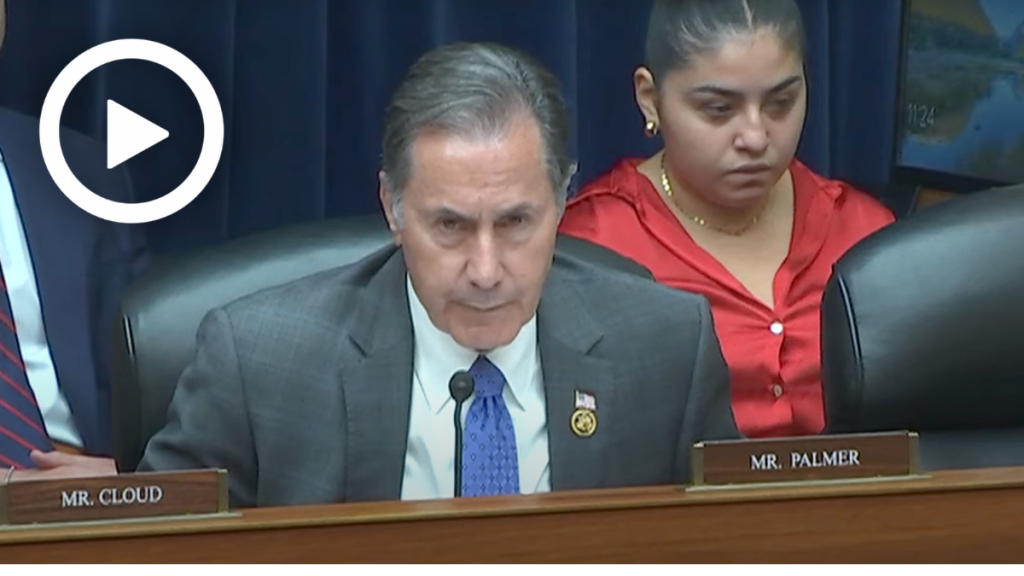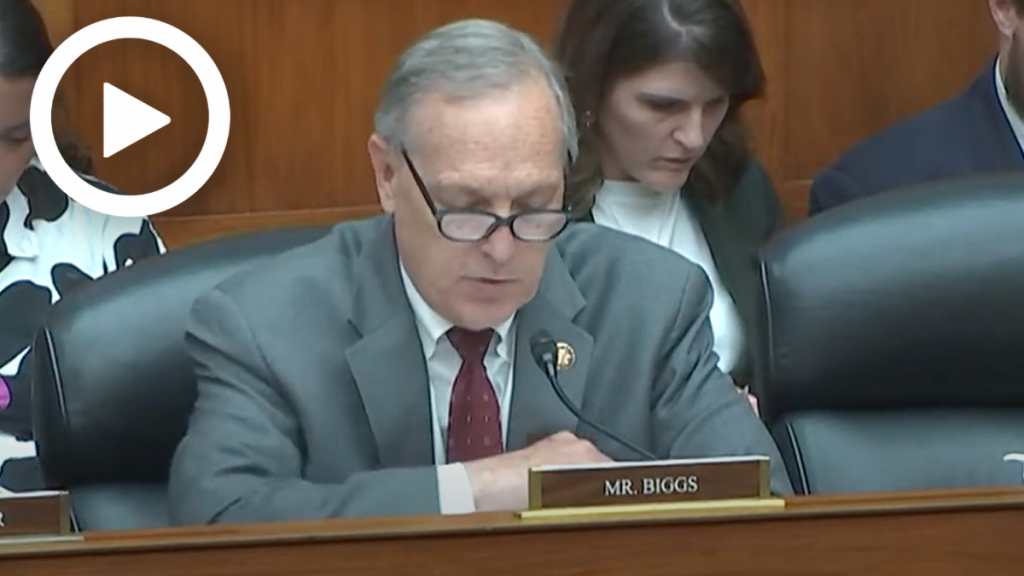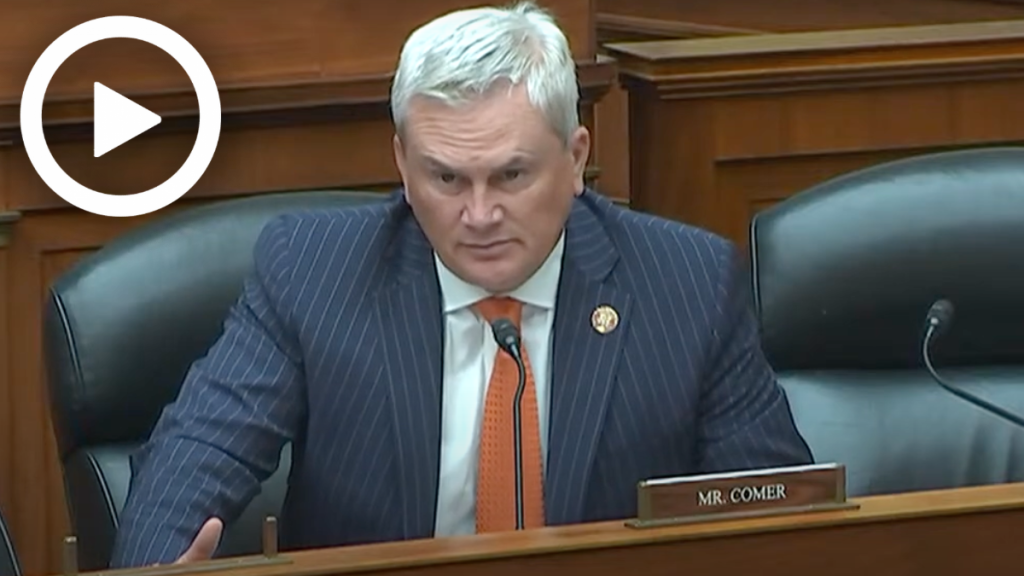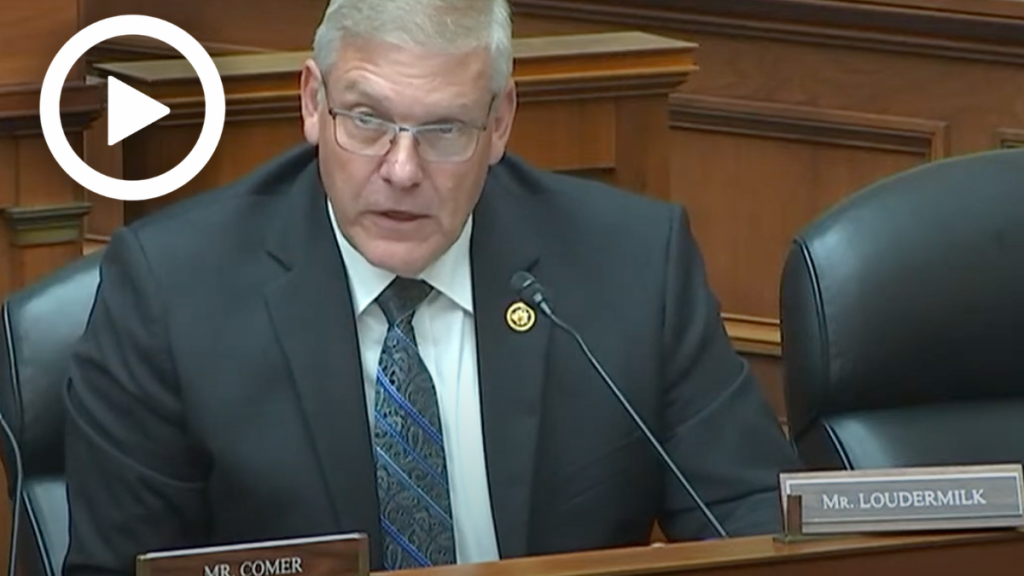Hearing Wrap Up: CIGIE Must Provide Transparency and Support to IGs to Prevent Waste, Fraud, and Abuse
WASHINGTON—The Subcommittee on Government and the Federal Workforce today held a hearing titled “Oversight of the Council of the Inspectors General on Integrity and Efficiency” to examine the processes and procedures within the Council for Inspectors General on Integrity and Efficiency (CIGIE) as it seeks to fulfill its mission to address integrity, economy, and effectiveness issues at individual government agencies through Inspector General (IG) oversight.
Key Takeaways:
Each Inspector General (IG) is an independent investigator attached to an agency within the executive branch charged with oversight and investigations within said agency. CIGIE is an independent body that has the ability to operate outside the executive branch’s influence.
- Lawmakers discussed CIGIE’s day-to-day practices and identified areas that can be improved to make the IG community more effective at identifying and rooting out waste, fraud, abuse, and mismanagement.
CIGIE was tasked with authority over the Pandemic Response Accountability Committee (PRAC), which was created with the purpose of overseeing pandemic relief spending and coordinating amongst IGs to investigate waste, fraud, and abuse.
- As CIGIE proposes extending PRAC, Congress has concerns as to whether CIGIE is able to manage these capabilities on an ongoing basis.
It is imperative that Congress and the public have confidence in CIGIE’s Integrity Committee (IC), which investigates allegations of wrongdoing against IGs ces and certain OIG personnel.
- Lawmakers remain concerned about a lack of transparency about the IC’s processes. At today’s hearing, lawmakers also asked about multiple IC investigations which have gone beyond the statutory 150-day limit in the past five years.
Member Highlights:
Rep. Gary Palmer (R-Ala.) discusses CIGIE’s role using data analytics to identify and investigate fraud in Covid-relief programs, and highlighted the need to prevent fraud in the first place.
Rep. Palmer: “During the pandemic, there was a massive amount of fraudulent spending widely referred to as the greatest theft of taxpayer money in history. Has the PACE data center been effective in recovering any of that?
Mr. Greenblatt: “Yes sir, I think many of those investigations related to the pandemic are certainly ongoing right now and are already delivering returns. The key though is what you said at the outset, the initial part of your question there which is the prevention piece. That’s where we really are pushing for a data hub inside CIGIE that will allow us to be affirmatively preventing some of those bad dollars from going out the door.”
Rep. Palmer: “Have you experienced the same issues with audits done by the inspector generals that never really get acted on, the recommendations never get implemented.”
“I think some agencies are better than others, I think some of the relationships between the IGs are better than others, and so I think it’s a bit of a hodge podge. Some of them are pretty good about implementing but some of them are absolutely terrible about it. I think the key is two things. One is transparency, so what we are doing at CIGIE is trying to make our open recommendations even more prominent on oversight.gov, which is our primary outward facing website, so that you all can see them. The other part of that, part two of that, is frankly pressure from Congress. If you all see open recommendations that we’ve identified as significant, come talk to us and we can share with you what are the hot button items that we think the agency should be implementing, and then I think you’re going to see product move, if you will.”
Rep. Andy Biggs (R-Ariz.) examined the subjective nature and lack of due process in CIGIE investigations.
Rep. Biggs: “The Inspector General Act authorizes CIGIE’s Integrity Committee to investigate allegations of wrongdoing on the part of an IG or senior official within the office. How does the Integrity Committee define wrongdoing?”
Mr. Greenblatt: “There are three main buckets that the Integrity Committee uses and it’s significant misconduct like gross mismanagement, there’s conduct unbecoming of an official in that position […] that’s generally the nature of the allegations.”
Rep. Biggs: “That’s interesting to me because the IG Act does not define wrongdoing in the relevant statute. […] The definitions you used have massive holes and subjective interpretation to them.
Chairman James Comer (R-Ky.) discussed opportunities for how the PACE data center can better work with existing programs to prevent fraud in government programs and expedite investigations of fraud.
Chairman Comer: “If Congress were to move the PACE into CIGIE, what other agencies would CIGIE work with to utilize these capabilities to prevent improper payments, not just pay and chase. For instance, how would you coordinate with the financial integrity systems at the U.S. Treasury, such as do not pay?”
Mr. Greenblatt: “We’ve already met with the assistant secretary there, specifically to discuss that very potential. I think it should be inside CIGIE. Currently the PRAC is inside CIGIE, so it’s sort of technically inside CIGIE now. We expansion we believe should be inside CIGIE now.”
Chairman Comer: “One of the most significant concerns with any government-wide data analytics platform is security data, which any expansion of the PACE would create. CIGIE has never overseen the protection of data on that scale. Why should Congress CIGIE as the best positioned to protect the data?”
Mr. Greenblatt: “We’re doing it now with the PACE frankly, and I think we have the capability to do it on a grander scale. These are systems that many IGs already have access to individually. What this would do is I think make it more efficient by making it in one central spot that the other IGs can go to.”
Chairman Comer: “Each month, the Committee receives a notification of every investigation that has gone beyond a thirty day and a hundred- and fifty-day period. Most recently, this includes six investigations which has surpassed the hundred- and fifty-day period, four of which are from 2022 or earlier. Is it acceptable to have investigations open for two, three, or even four years?”
Mr. Greenblatt: “No sir, that is a massive problem for us.”
House Administration Subcommittee on Oversight Chairman Rep. Barry Loudermilk (R-Ga.) asked about each IGs role as an independent investigator and CIGIE’s role in providing support to IGs.
Rep. Loudermilk: “How can CIGIE be an independent entity, entrusted with addressing integrity issues in the offices of Inspector General if they are deferential to the OIG that they are tasked with overseeing?”
Mr. Greenblatt: “We at CIGIE, the council, we don’t want to step on the toes of the individuals IGs and their relationship with Congress. Sometimes we get incoming from Congress about specific members, and it would be inappropriate for us to weigh in. Sometimes we do defer to the individual IGs. In this case, we perhaps should have come to you first.”
CLICK HERE to watch the full hearing.



